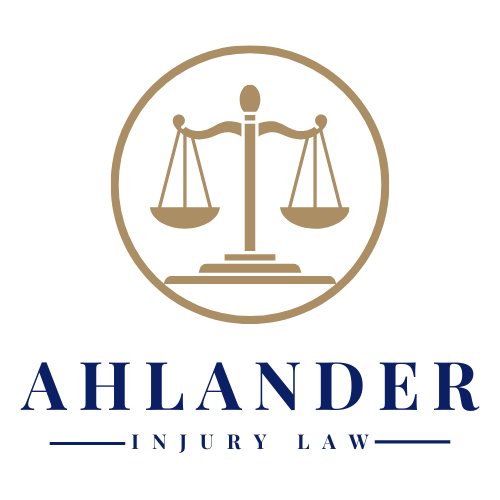How to Navigate Insurance Adjuster Tactics
When someone experiences an accident, dealing with the aftermath can be overwhelming. This often involves interacting with insurance adjusters whose job is to assess the damages and determine the payout. These professionals employ various tactics that might not always align with the victim's best interest. Understanding these maneuvers and how to effectively respond is crucial for anyone looking to secure a fair settlement. This process, while complex, can be navigated with the right knowledge and approach.
Understanding the Role of Insurance Adjusters
When involved in an accident, one of the first contacts you'll likely have from the insurance world is with an insurance adjuster. An insurance adjuster, also known as a claims adjuster, is a professional employed by an insurance company to assess and manage the settlement of insurance claims. Post-accident, their roles include evaluating the extent of the insurance company's liability, interviewing the claimant and witnesses, gathering medical reports, and negotiating the claim settlement. Essentially, their job is to gather all necessary information to determine how much compensation the insurance company should pay for the loss.
Insurance companies are businesses, and like any other business, their primary goal is to make a profit. This objective can sometimes lead to practices aimed at minimizing the payouts for claims. While it is within their rights to assess claims carefully to prevent fraud, claimants need to remember that adjusters' interests are aligned with their employers' - the insurance companies - and not necessarily with the victims of accidents. This understanding is crucial when navigating post-accident discussions with insurance adjusters.
Distinguishing between your insurance adjuster and the other party's adjuster is also vital. If you are the victim in an accident, you will generally deal with two adjusters: one from your own insurance company (if you are claiming your policy) and one from the other party's insurance company. The adjuster from your insurance company is bound by your policy terms to treat you fairly and in good faith; the adjuster from the other party's insurance has no such obligation towards you. Their primary aim will be to reduce liability for their employer. Thus, interactions with the other party's adjuster require careful navigation to ensure you do not inadvertently harm your claim.
Understanding the role and motivations of insurance adjusters following an accident is essential for claimants. This knowledge helps navigate the claims process more effectively, ensuring that you are fairly compensated for your losses. While adjusters play a pivotal role in the aftermath of an accident, it's crucial to approach these interactions informed and prepared.
Common Tactics Used by Insurance Adjusters
Navigating the aftermath of an accident involves not only dealing with physical recovery but also contending with the strategic moves of insurance adjusters. Being aware of the common tactics used by these professionals can help claimants ensure they don't undervalue their compensation or compromise their positions.
The Friendly Approach
One of the first strategies an insurance adjuster might employ is the friendly approach. By building rapport and seeming sympathetic to your situation, they aim to make you more comfortable and less guarded in sharing information. While it's natural to want to cooperate, sharing too much or speculating about the accident could inadvertently harm your claim. It’s crucial to be polite yet cautious and always consider consulting with a legal advisor before discussing the accident in detail.
Requesting Recorded Statements
Adjusters may ask for a recorded statement under the guise of expediting your claim process. This can be a double-edged sword. Anything you say can be scrutinized and potentially used to minimize your compensation or deny your claim outright. It's generally advised to decline to provide recorded statements without legal advice.
Rushing for a Quick, Undervalued Settlement
Insurance companies often propose a quick settlement early in the process. While this might seem appealing, especially when facing mounting bills, these initial offers are typically much lower than what the claim is worth. Rushing into an agreement can lead you to miss out on adequate compensation once the full extent of your injuries and damages becomes clear.
Denying and Delaying Tactics
Conversely, denying or delaying claims is another method aimed at wearing claimants down. This tactic capitalizes on the financial and emotional strain of accidents, pressuring victims to settle for less out of desperation. Staying vigilant and persistent is key, as is thorough documentation of all interactions and delays.
Surveillance and Social Media Checks
Adjusters may also conduct surveillance or scrutinize your social media accounts to find any evidence that contradicts your claim of injury or loss. It’s wise to limit public discussions and postings about the accident and your recovery process.
Being cognizant of these tactics used by insurance adjusters can empower claimants to navigate post-accident dealings more effectively. Keeping communications professional, avoiding quick settlements without understanding the full scope of your losses, and consulting with legal professionals can help ensure you're adequately protected and compensated.
How to Protect Yourself and Navigate the Process
In the complex aftermath of an accident, the way you interact with insurance adjusters can significantly influence your claim's outcome. To ensure you navigate this process to your best advantage, here are key strategies designed to protect your interests and secure the compensation you rightfully deserve.
Avoid Admitting Fault or Speculating
Post-accident, it's natural to engage in conversations about what happened. Admitting fault, even partially, or speculating about the causes and repercussions can severely impact your claim. It's crucial to limit your discussions about the accident details with insurance adjusters until you have consulted with an attorney. Stick to the facts and avoid any admissions of guilt.
Understanding Settlement Offers
Quick settlement offers are often far below what the claim is worth, designed to capitalize on your immediate need for financial support. Accepting such an offer without understanding the full extent of your injuries and damages can leave you without the necessary means for complete recovery. Before agreeing to any settlement, consider consulting with a personal injury attorney to ensure it accurately reflects the full extent of your losses.
The Importance of Documentation
Robust documentation acts as the backbone of a successful claim. This includes medical reports, repair bills, evidence of lost wages, and any other expenses incurred due to the accident. Documenting your injuries and recovery process provides tangible evidence of your claims, forming a basis for your compensation demands.
Legal Consultation
Perhaps the most crucial step in protecting yourself during insurance claims is consulting with an attorney experienced in personal injury law. An attorney can offer invaluable advice on dealing with adjusters, negotiate on your behalf, and ensure that your rights are protected throughout the process. Their expertise in interpreting insurance policies and understanding the nuances of the law can level the playing field against tactics utilized by insurance adjusters.
Negotiating Fairly
Success in negotiations requires a clear understanding of your claim's value and the patience to push back against lowball offers. It's essential to be prepared to explain and justify your demands with your documentation. If negotiations reach a standstill or if the settlement offer remains unreasonable, it may be time to consider escalating the matter through legal channels. Navigating the legalities of insurance adjustment post-accident can feel daunting, but armed with the right information and strategies, you can protect your interests. By being cautious in your communications, seeking appropriate legal counsel, and understanding the value of your claim, you can ensure a more favorable outcome. Remember, while insurance adjusters utilize various tactics to protect their company’s bottom line, your priority is securing fair and just compensation for your losses. Stand firm, stay informed, and consider professional legal assistance to guide you through this intricate process.
Feeling overwhelmed by dealing with insurance adjusters after an accident?
At Ahlander Injury Law, we know the tactics used and are here to guide you, ensuring you get the compensation you deserve.





